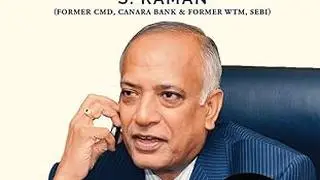MJ Akbar’s Gandhi A Life in Three Campaigns is a well-researched and readable book on Mahatma Gandhi. Written with a fine journalist’s flair and a historian’s eye, the Gandhi we come across in Akbar’s book is all too flawed a human - one, who almost leaves his wife for another woman, prevents his son from marrying a Muslim, and has a deeply troubled and sometimes bizarre sexuality. However, what makes Gandhi one of the greatest Indians is the non-violent freedom movement he led, totally marginalising those like Subash Chandra Bose who preferred an armed struggle.
For over three decades Gandhi spearheaded a freedom struggle against the mightiest empire of all time non-violently and without hate but with great guile and cunning. In the sheer scale of achievement there is nothing in history to match Gandhi steering a fifth of mankind to freedom with so little violence. Even after taking the murderous mayhem of partition into account, it was far less bloody than Lenin’s takeover of Russia or Mao of China.
Gandhi repeatedly stumped the British and reduced his colleagues in the freedom movement to mere acolytes by aligning them to his philosophy of non-violence, non-cooperation, swadeshi, religious accommodation, and inclusiveness. Gandhi frustrated one Viceroy - Lord Wavell - and charmed others before him, especially Lord Irwin and Lord Linlithgow, and the last one to hold that post, Lord Mountbatten.
Three important campaigns
Akbar’s book is loosely centred around three of the most important of Gandhi’s many campaigns. The first of these was the resistance Gandhi mounted against the unjustness of the 1919 Rowlatt Act through the non-cooperation movement. The most remarkable aspect of the agitation was how much in control Gandhi was to be able to bring it to an abrupt end because of a single shocking instance of violence his followers indulged in by killing 23 policemen in Chauri Choura on 4th February 1922. In the trial that followed Gandhi not only pleaded guilty but famously called out the British for the unjustness of their rule while establishing the centrality of non-violence in the freedom struggle, he led.
The second of the three campaigns the famous Salt March (12th march to 5th April 1930) was as simple as it was effective showing up the British as tyrannical and inconsiderate for taxing salt, the most basic of commodities especially for India’s poor. Akbar’s coverage of the Salt March and developments preceding it gives us a real time feel to an event that happened almost a hundred years ago.
The last of the three campaigns Akbar highlights is the ‘Quit India’ movement (8th August 1942) Gandhi launched during the Second World War. Akbar brings the drama associated with the movement dramatically alive with a detailed account of developments leading up to it, including a brief but lucid account of the failed Cripps mission in March 1942.
Jinnah’s divisive ways
Gandhi struggled with Jinnah and his divisive ways. He met him, flattered him, and even suggested he be the Prime Minister of an undivided India to Mountbatten. A break up of the country on religious grounds was unthinkable to Gandhi and he had in the past gone out of his way to forge a good relationship with India’s Muslims. By linking his non-cooperation movement to the Khilafat Movement (1919-1924) Gandhi sought to forge a Hindu-Muslim unity that he recognised was central for India’s survival. Pitted against Jinnah and his machinations Gandhi’s vision held in the emergence of a secular and free India in August 1947 with Muslims constituting a significant percentage of India’s population even after partition had depleted their numbers.
The fast Gandhi undertook to do away with communal representation of the depressed classes in provincial and central legislatures is well covered by Akbar. The Poona Pact (24th September 1932) arrived at between Gandhi and Ambedkar resulted in a wider and better affirmative action programme while ensuring that the Hindu community stayed together mostly under Gandhi giving him the de facto leadership of most Hindus.
Few historians explicitly acknowledge the importance of the Poona Pact. Without it Gandhi could not have taken on Jinnah with his hold on India’s Muslims, as strongly or as effectively as he did. More than anything else it is the Poona Pact that gave confidence to Gandhi and the Congress Party that it could launch a Quit India movement, reject the offer made by the Cripps mission for a post-war deal and sit out the war without fearing that its Hindu base would erode or fragment.
At just 250 pages Akbar’s book is short while giving a comprehensive account of Gandhi that is credible without being demanding of a person’s time. That the book has a comprehensive bibliography and surprisingly an index which many publishers in India drop comes as a pleasant and welcome surprise too.
The reviewer teaches at IISc Bengaluru.
Check out the book on Amazon









Comments
Comments have to be in English, and in full sentences. They cannot be abusive or personal. Please abide by our community guidelines for posting your comments.
We have migrated to a new commenting platform. If you are already a registered user of TheHindu Businessline and logged in, you may continue to engage with our articles. If you do not have an account please register and login to post comments. Users can access their older comments by logging into their accounts on Vuukle.